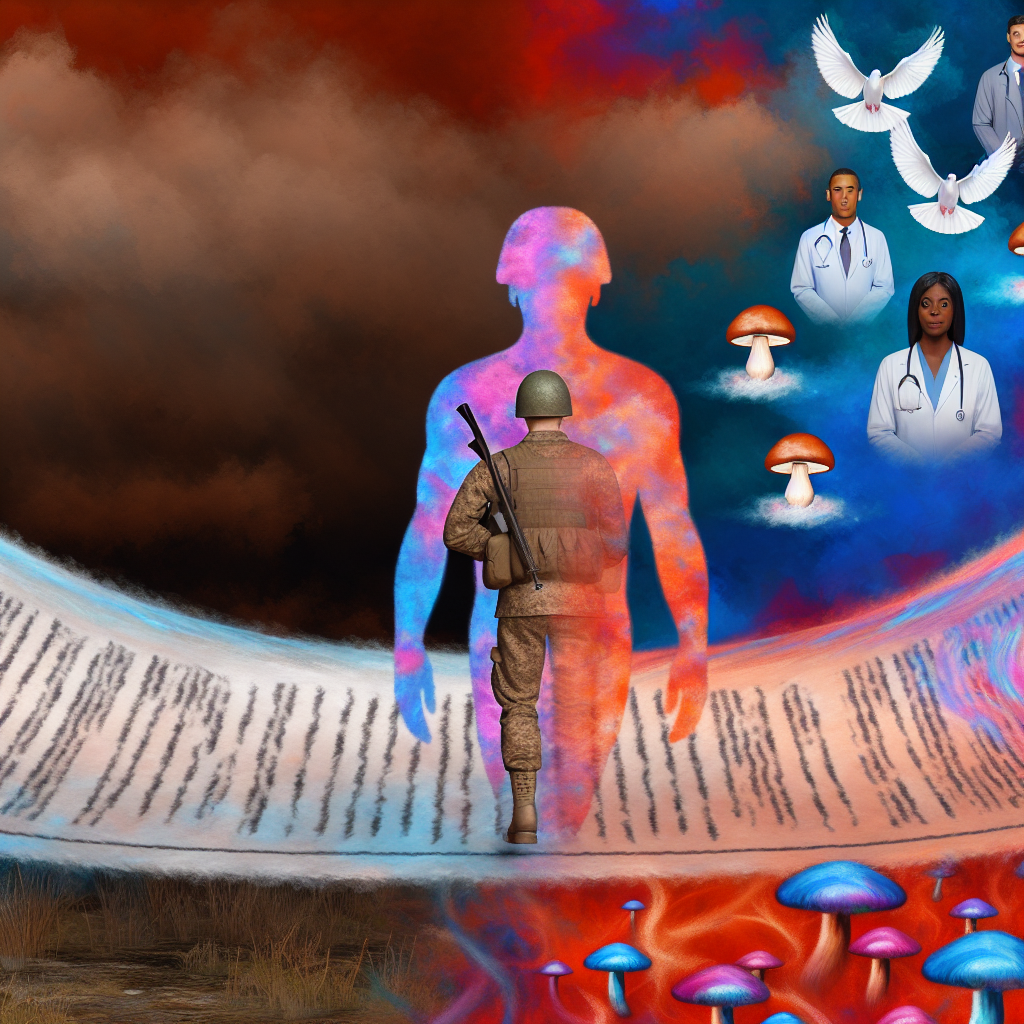Veteran Access to Psilocybin Treatment: Policy Changes and Clinical Programs
Introduction: A New Hope for Healing
Veterans, especially those who have served in combat zones, often return home grappling with profound physical, emotional, and psychological scars. Post-traumatic stress disorder (PTSD), depression, anxiety, and substance abuse disorders are prevalent among this population, leading to a pressing need for innovative, effective treatments. Traditional pharmacological therapies and talk therapies don’t work for everyone, and many veterans continue to suffer despite trying multiple treatment modalities.
In recent years, psilocybin—the naturally occurring psychedelic compound found in certain species of mushrooms—has emerged as a promising therapeutic option. Growing evidence suggests psilocybin can significantly help alleviate symptoms of treatment-resistant depression, PTSD, and addiction. For veterans, the potential of psilocybin therapies offers not just another treatment option but the possibility of genuine emotional and psychological healing.
Policy changes surrounding psychedelic treatments, particularly for veterans, are beginning to change the landscape of mental healthcare. Groundbreaking legislative shifts, such as Oregon’s Measure 109, the FDA’s granting of “Breakthrough Therapy” status for psilocybin-assisted therapy, and the Department of Veterans Affairs’ engagement with psychedelic research, are building a new frontier for veteran care. Additionally, clinical programs designed specifically for veterans are opening across the U.S., providing structured, supervised opportunities for healing with psychedelic therapies.
With both societal attitudes and governmental policies evolving, the once-taboo subject of psychedelics has entered mainstream conversations. Researchers, healthcare providers, and veteran advocacy organizations are playing a significant role in dismantling outdated stigmas. As a result, the path for veteran access to psilocybin treatment is becoming increasingly viable.
In this article, we will explore the key policy changes enabling veteran access to psilocybin therapies and highlight clinical programs making these treatments a real possibility for those who have served. The convergence of science, policy advocacy, and program development marks a hopeful chapter for veterans seeking transformative healing.
The Science Speaks: Breakthrough Medical Studies on Psilocybin Treatment
The resurgence of clinical interest in psychedelics has been greatly influenced by top-tier medical research institutions such as Johns Hopkins University and Imperial College London. A pioneering study conducted by Johns Hopkins in 2020 found that participants receiving two doses of psilocybin, combined with supportive psychotherapy, experienced large, sustained reductions in depressive symptoms ([Davis et al., 2020](https://jamanetwork.com/journals/jamapsychiatry/fullarticle/2772630)). Similarly, a 2021 clinical trial published in *Nature Medicine* observed that MDMA-assisted therapy—another form of psychedelic treatment—substantially improved symptoms of PTSD in patients, many of whom were veterans and first responders ([Mitchell et al., 2021](https://www.nature.com/articles/s41591-021-01336-3)). These findings, while based on MDMA, bolster the overall push toward psychedelic-assisted psychotherapy in trauma treatment.
Moreover, the Multidisciplinary Association for Psychedelic Studies (MAPS) has been at the forefront of conducting clinical research focused on veterans. Their work demonstrates that guided psychedelic therapy can be both safe and highly effective. Although MAPS has primarily focused on MDMA, their research has facilitated broader acceptance of psychedelic therapies, including psilocybin, for clinical use.
Policy Shifts Open New Doors for Veteran Healing
Recognizing psilocybin’s potential, the FDA designated psilocybin-assisted therapy for treatment-resistant depression as a “Breakthrough Therapy” in 2018. This status expedites the development and review processes for drugs that show substantial improvement over existing therapies in preliminary clinical evidence. This move was critical in legitimizing psilocybin as a serious candidate in mental health treatment, paving the way for broader clinical trials and access programs.
Additionally, Oregon’s approval of Measure 109 in 2020 allowed for the regulated medical use of psilocybin in therapeutic settings, becoming the first state to do so. While Oregon’s law applies to the general population, veterans stand to benefit significantly from this accessible, state-controlled therapeutic option. Other states, such as Colorado and California, are considering similar measures.
Clinical Programs Empowering Veterans with Psychedelic Therapy
Clinical programs tailored for veterans are also emerging. Organizations like [Heroic Hearts Project](https://heroicheartsproject.org/) connect veterans to psychedelic therapy retreats and research programs. Veterans exploring participation in psilocybin clinical trials can engage in guided experiences under medical supervision that respect their unique psychological needs.
Similarly, the Department of Veterans Affairs (VA) has cautiously begun funding studies exploring the efficacy of psychedelics for PTSD, a monumental shift compared to past policies that ostracized alternative treatments. The growing presence of structured, veteran-focused psychedelic programs opens up new paths for healing, connection, and long-term recovery.
Conclusion: A Promising Frontier for Veteran Care
The movement toward veteran access to psilocybin treatment represents a powerful intersection of science, policy, and compassion. As groundbreaking research continues and courageous legislative efforts break old stigmas, veterans are finding new hope through psychedelic-assisted therapies. Programs and policy changes tailored to the unique needs of this community offer a promising, transformative path forward—one that honors their service with the healing they truly deserve.
—
Concise Summary:
Veterans often struggle with mental health issues like PTSD, depression, and addiction, but traditional treatments don’t work for everyone. Emerging research shows that psilocybin, the psychedelic compound found in certain mushrooms, can significantly alleviate these symptoms. Policy changes, such as the FDA’s “Breakthrough Therapy” designation for psilocybin-assisted therapy and Oregon’s legalization of regulated psilocybin use, are opening new doors for veteran access to these transformative treatments. Clinical programs specifically designed for veterans are also providing structured, supervised opportunities for healing with psychedelic therapies, offering a promising frontier for veteran care.
Reference Hyperlinks:
[Davis et al., 2020](https://jamanetwork.com/journals/jamapsychiatry/fullarticle/2772630)
[Mitchell et al., 2021](https://www.nature.com/articles/s41591-021-01336-3)
[Heroic Hearts Project](https://heroicheartsproject.org/)

Dominic E. is a passionate filmmaker navigating the exciting intersection of art and science. By day, he delves into the complexities of the human body as a full-time medical writer, meticulously translating intricate medical concepts into accessible and engaging narratives. By night, he explores the boundless realm of cinematic storytelling, crafting narratives that evoke emotion and challenge perspectives. Film Student and Full-time Medical Writer for ContentVendor.com




